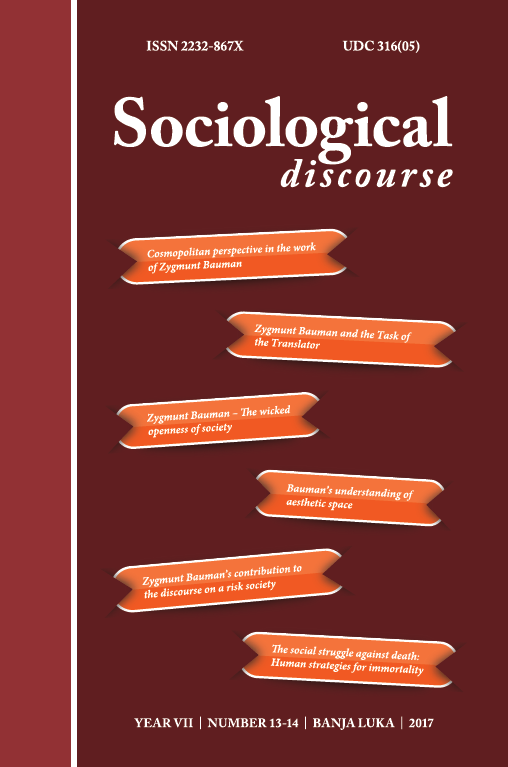Cosmopolitan perspective in the work of Zygmunt Bauman
DOI:
https://doi.org/10.7251/SOCEN1713005RAbstract
The theoretical legacy of Zygmunt Bauman is an inexhaustible sourceof inspiration for sociological analysis, particularly bearing in mind
the scope of his work and the diverse range of modern day problems
that this British-Polish author dealt with. The first part of this article
examines the question of personal identity in liquid modernity, which
is the starting point of Bauman’s work. Similar to some other authors,
Bauman discusses the paradox of the individual who is not free in
an individualized society. Bauman’s diagnosis carries pessimistic features
which in some places correspond to insights developed in classical
sociology. Bauman makes occasional and sporadic incursions
into the pitfalls of conservative thought, particularly in relation to
the dichotomies of individual versus community, individualism versus
togetherness, and egoism versus solidarity. However, it seems that
the author manages to skilfully avoid the inherent theoretical traps of
sociology, turning towards cosmopolitan theory. The second part of
this article presents the thesis that Bauman’s thought is in fact cosmopolitan,
especially bearing in mind his final public appearances and
writings. This argument is based in his description of global society
that is simultaneously integrating and developing, and dramatically
disintegrating and regressing. Bauman writes about violent killings
and expulsions of people in the 21st century and their inability to find
refuge in the Western and democratic world that promotes human
rights. Recalling the crucial cosmopolitan principles of solidarity and
hospitality, Bauman makes an appeal to progressive forces to consolidate
and work on opening and reaffirming the “cosmopolitan condition”
of contemporary society.
Downloads
Published
2018-03-08
Issue
Section
Engleski
